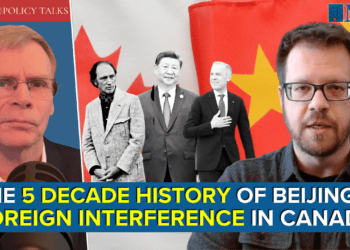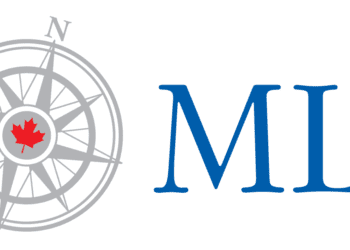Writing for the website Leaders and Legacies, Macdonald-Laurier Institute Managing Director Brian Lee Crowley argues that former prime ministers should play a larger role in public life once they leave office.
The unique political culture of the United States explains in part why their former presidents play a larger role in public life, he says.
Still, he believes “we can and should make better use of them in non-political roles that celebrate the contribution they have made and the statesmanlike role they can acquire”.
Leaders and Legacies is a news site devoted to articles about Canada’s former prime ministers.
By Brian Lee Crowley, Oct. 7, 2014
America has a great resource in its former presidents. Is Canada passing up a good thing in not making better use of its former prime ministers?
According to the book The Presidents Club, the tradition of sitting presidents using former presidents as unofficial ambassadors, fixers and even inspiration really began with Harry Truman’s surprising relationship with Herbert Hoover. Republican Hoover not only inspired Truman’s highly successful plans for postwar global reconstruction but was instrumental in the Democrat’s ambitious plans to recast government in Washington.
Few other former presidents went on to play such a key role in their post-presidential life, but there are many stories of Oval Office incumbents asking former occupants to carry messages to world leaders or to represent them and the country in various ways. It makes sense to do so. The aura of ultimate power clings stubbornly to former presidents, making them a particularly potent symbol of American power and prestige when the current president is unavailable.
Nor is their role limited to representing the president. Because former presidents generally retire from politics altogether, they can quickly become post-political senior statesmen, knowledgeable of world affairs and world leaders and able to give fairly disinterested advice to their successors. Having shared the burdens of the most demanding job in the world, Bill Clinton or George H.W. Bush or any of the other living former presidents can prove to be a sympathetic ear and a source of valuable insight.
Canada also finds itself blessed with a wealth of former prime ministers, ranging from Joe Clark and John Turner to Jean Chretien and Paul Martin. Yet there is little sense that Canadian prime ministers make such use of their predecessors. Why not?
It can’t be the parliamentary system alone that explains it. The current British prime minister, David Cameron, did not hesitate to call on his immediate predecessor, the Scot Gordon Brown, when the No side in the recent Scottish referendum needed a powerful home-grown advocate.
Many of the reasons why former US presidents are valuable to their country apply to former Canadian prime ministers, and it is a waste of a huge fund of talent and experience that we do not make more use of them. On the other hand, Canada is not the United States and the offices of prime minister and president are not strictly comparable. Moreover it is easy to exaggerate the role played by former presidents and we should be clear what they do and don’t do and the limits politics and personality create in their post-political life.
One of the most vital yet subtle distinctions between our two nations is that the office of president combines the roles of head of state and head of government, whereas in a monarchical parliamentary system like Canada’s these roles are rigorously separated. The American president therefore embodies the reverence Americans feel for the symbols of their nationhood, and becomes a rallying figure for the nation beyond politics.
Prime ministers are unambiguously partisan figures and few are the former PMs who may be said to have incarnated the nation during their time in office. Separating the glory of the state from the grubbiness of politics is a great strength of our system but it inevitably means that former PMs cannot trade on a symbolic role that former presidents acquire as a matter of course.
Just as importantly, some former presidents are more “post-political” than others. Bill Clinton, for example, remains highly ambitious for his wife, Hillary. That means that any president who calls on Bill’s services must consider how that political capital might be deployed in pursuit of political priorities not his own. And since we’re talking about Bill Clinton and politics, we might as well get out there the elephant standing hugely but quietly in the corner.
Bill Clinton left office one of the most popular presidents in living memory. The current president, Barack Obama, is now plumbing depths of unpopularity that exceed even those of George W. Bush. One has only to see Obama’s uncomfortable body language whenever he and Clinton share a stage to see that Obama feels keenly the unfavourable comparison that their juxtaposition creates in the public mind. Obama is diminished by Clinton’s presence and he knows it. Why would he give profile to the man or rely on advice that might not be as politically disinterested as it could be?
In Canada think about Joe Clark. After being displaced as party leader by Brian Mulroney, he served as a loyal lieutenant in the two Mulroney governments. But after the defeat of the Tories in 1993 he made it clear to whoever would listen that he had not renounced his political ambitions and indeed went on to become the leader of the PC rump in the Commons. Jean Chretien has similarly been an active Liberal partisan, attacking the Tories when not disparaging his successor as Liberal leader. An active politician cannot hope to achieve the post-political prestige on which usable former presidents rely.
It is also the case that former presidents (Gerald Ford being the only exception in postwar America) have been embraced at least once by the national electorate and have served at least one full four year term. Joe Clark, John Turner and Kim Campbell can make no such claim and Paul Martin’s time as PM was attenuated.
Finally, character and reputation have made some former office holders on both sides of the borderpersona non grata. Richard Nixon spent his retirement largely in disgrace and therefore politically radioactive. Brian Mulroney’s much-regretted post-political dealings with Karl-Heinz Schreiber have made him an equivocal figure to say the least, and he and the current prime minister clearly blow hot and cold on each other.
Canada has a wealth of former prime ministers who represent the best of our political tradition and leadership. We can and should make better use of them in non-political roles that celebrate the contribution they have made and the statesmanlike role they can acquire. Paul Martin’s sterling work on Aboriginal issues stands as a yardstick against which others might measure themselves and it is a delight to see Joe Clark putting his shoulder to the wheel with him. But we cannot ignore the limits our very different systems impose on former prime ministers who simply cannot hope to achieve the prestige that former presidents enjoy, just as we cannot ignore how the behaviour of individual former politicians affects their fitness for such a post-political role representing the best of who we are.
Brian Lee Crowley (twitter.com/brianleecrowley) is the Managing Director of the Macdonald-Laurier Institute, an independent non-partisan public policy think tank in Ottawa: www.macdonaldlaurier.ca.




